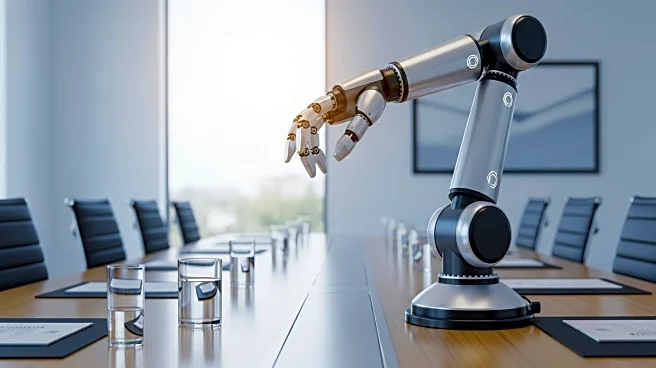What's Happening?
The integration of artificial intelligence (AI) into the workplace is causing significant changes across various sectors, with many roles facing the threat of automation. This shift is particularly affecting jobs involving routine tasks, such as accounting and auditing. While some companies are using AI to enhance employee productivity by eliminating monotonous tasks, others are reducing staff to cut costs. The National Association of Corporate Directors emphasizes the importance of balancing AI adoption with human capital governance, urging boards to consider the implications of AI on talent management and workforce culture.
Why It's Important?
AI's impact on the workforce has broad implications for industries, employment, and corporate governance. As AI technology advances, it presents opportunities for increased efficiency and innovation but also poses challenges related to job displacement and workforce morale. Companies must navigate these changes carefully to maintain a motivated and resilient workforce. The governance concerns raised by AI adoption highlight the need for transparent communication, retraining opportunities, and ethical considerations in managing human capital. Boards of directors play a crucial role in ensuring that AI implementation aligns with corporate values and respects employee dignity.
What's Next?
Corporate leaders are encouraged to establish clear strategies for AI integration, including support for employees affected by automation. This may involve enhancing separation benefits, offering educational incentives, and providing retraining programs. As AI continues to evolve, companies will need to adapt their workforce management practices to address the changing landscape. The focus on human capital governance will be essential in fostering a positive workplace culture and ensuring that technological advancements benefit both businesses and employees.









